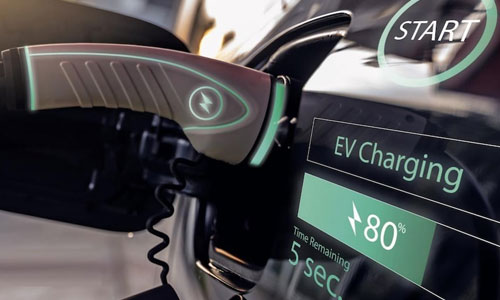In this era where a sustainable approach is touching every sphere, the automobile sector is heading the legacy with electrical vehicles. Charging them fully after regular intervals is one of the important aspects to consider to maintain the smooth performance of these vehicles powered by electricity and direct current.
Ever since the introduction of EV vehicles in India, the Government of India has helped users set up charging stations. In fact, with the help of guidelines for setting up electric vehicle charging stations, the objective of the government has been to set up over 2700 public EV charging stations at multiple locations. Be it metros, major cities, smart cities, or locations in hilly areas, these guidelines enable users to proceed rightly and set up the EV charging station in India.
When it comes to setting up an electric car at an EV charging station, there are some essential aspects worth exploring:
Spaces including private residences, electricity DISCOMS, and offices can set up EV charging stations. The individual or organization does not require any license to set up an electric vehicle charging station. Regarding performance standards, the Ministry of Power and the Central Electricity Authority facilitate the users with adequate guidelines. In addition, the requests for setting up charging stations are addressed on a priority basis to set up EV charging stations in India. As a part of the request and requirement, the electricity distribution company of the particular area will address the need for a charging station without any delay.
Steps to Set up EV charging stations in India
Hiring a certified technician to install charging stations for electric vehicles is a must. Since there are multiple risks and intricacies involved in setting up the charging station, professionals who have completed their certification course in electric vehicle infrastructure training must be preferred. It will further ensure that the EV charging station is installed on your premises with the utmost precision. Following are the important steps that need to be followed for the setup of EV charging stations in India:
Determine the home’s eligibility for charging station installation
The user has to check if his home is eligible for a charger installation to recharge an electric vehicle by connecting with the municipality or technical safety authorities of the location.
A sufficient electrical supply needs to be facilitated
Check if there is a sufficient flow of electricity to support EV chargers. Alternatively, upgrading to electrical extensions may also be availed for better compatibility with the electric vehicle charger.
Adequate space should be there in the electrical panel
There should be enough space in the electric panel so that, the circuit breaker for the EV charger can be accommodated. In case, the space is not adequate, then, the professional electrician needs to be contacted.
A charger should be purchased
As a part of this step, you need to purchase a charger. If rebate consideration is being checked, the appropriate model should be chosen.
The electrical permit should be obtained
Applying for the electrical permit is necessary and if the professional electrician is hired for the installation, then, he will apply for the permit.
Installation of the charger
When you plan to install an EV charging station in India, it is essential to hire professional electrical for inspecting the electrical work during charger installation.
Inspection of the EV charging station
After the installation of the EV charger at home, the next step is inspection. If you have already sought an electrician’s help, then, the electrical assessment will be timely scheduled.
Apply for a rebate
The application for the EV charger needs to be submitted and the applicable rebate is worth checking. With the help of this rebate consideration, the price of the charging station.
The above-stated guide to installing EV charging stations In India also has other considerations. Be it the speed of charging, the electrician’s fee, the space of the home to be converted into an electric vehicle charging station to limitations of choosing a particular space are some of the points to focus on. Last, but not the least, the cost estimate of the EV charging station should be checked before its installation.





Comments